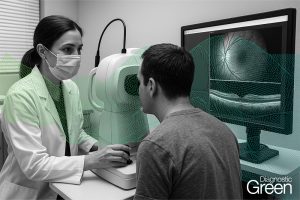Small bowel bleeding that does not respond to conservative therapy requires surgical resection. However, identifying the bleeding sites intraoperatively is challenging. Indocyanine green (ICG) fluorescence imaging improves diagnosis of small bowel bleeding and surgical decision-making by visualizing blood flow.
Herein, we reported two cases of small bowel bleeding that were successfully treated by using ICG to identify the bleeding sites and determine the extent of small bowel resection. The patients were a 46-year-old and a 75-year-old woman, both of whom presented with melena. Contrast-enhanced computed tomography and arteriography confirmed small bowel bleeding, and rebleeding occurred in both patients after transcatheter arterial embolization. Emergent surgeries were performed, and intraoperative selective angiography with ICG injections was conducted to identify obscure bleeding sites.
ICG fluorescence identified all bleeding sites in both cases, and small bowel resections were successfully performed. The postoperative courses were uneventful, and both patients had a favorable postoperative course without recurrence of bleeding. ICG fluorescence imaging can safely identify the sites of intestinal bleeding and determine the appropriate extent of bowel resection.




